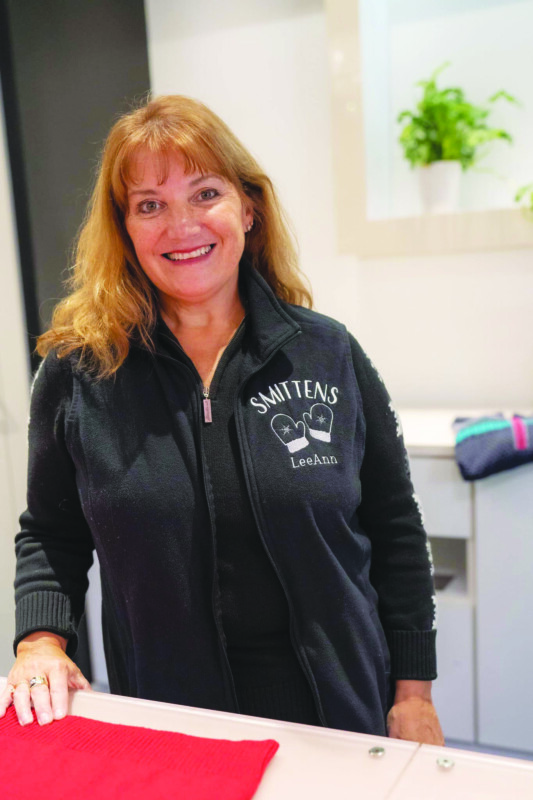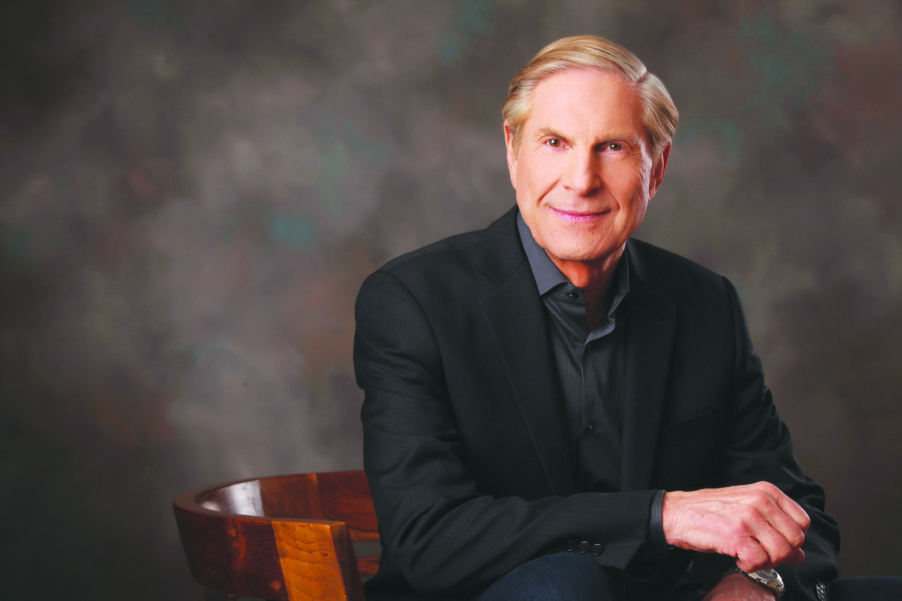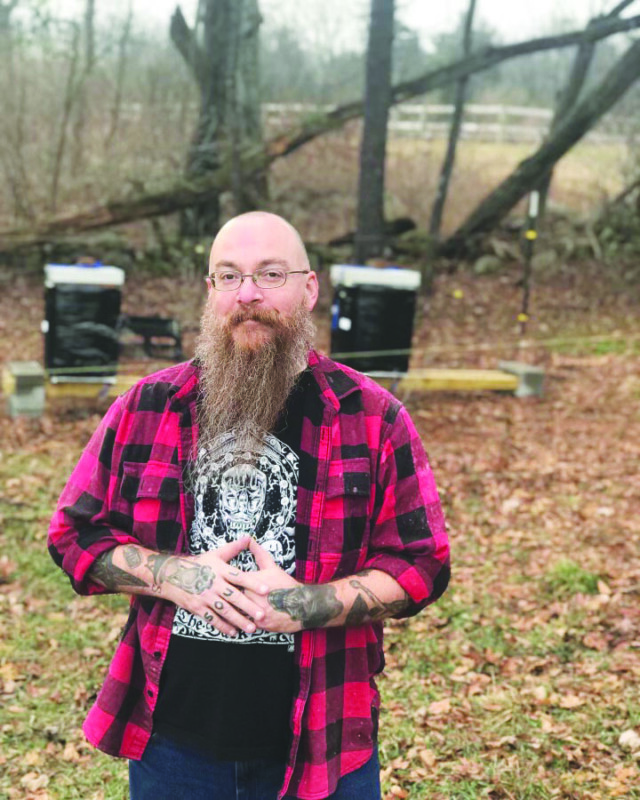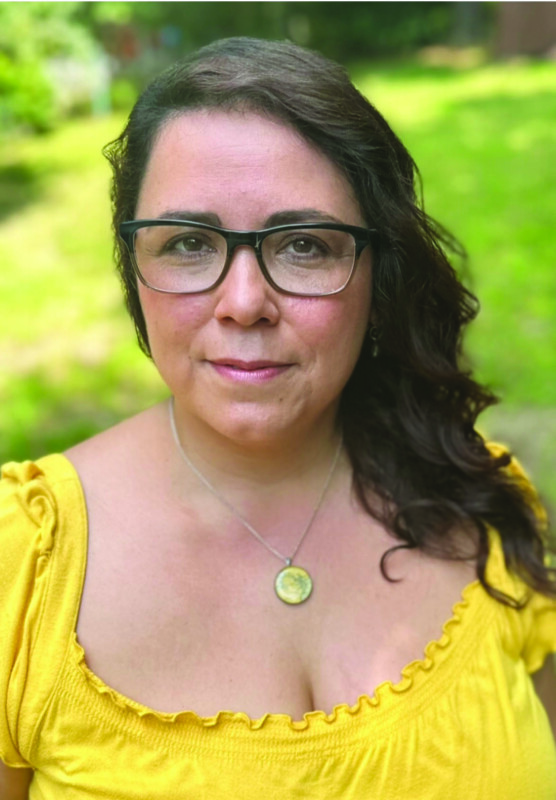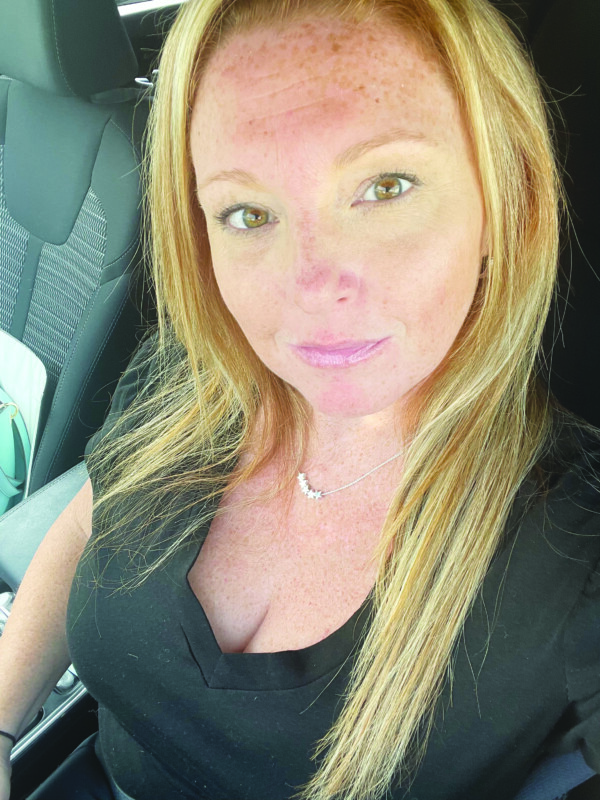Owner of Smittens
LeeAnn Fay-Ellis is the owner of Smittens, a family-run business in Gilford that specializes in crafting mittens from upcycled and repurposed sweaters.
Explain your job and what it entails.
As a small business, so much of the job is staying organized. Scheduling events, accounting, ordering enough fleece for the liners, inventorying the stores we sell in and being sure we have enough product for each event. … Searching and thrifting for good sweaters can be fun, especially when I get to shop with my daughter. My husband does all of the cutting and matching of patterns and colors before sending them to me to be sewn. This starts our assembly line process.
How long have you had this job?
Smittens was started in 2011.
What led you to this career field and your current job?
In 2011 I saw a vendor selling sweater mittens at a craft fair that our 10-year-old daughter was selling at. She did a trade with her for a pair of sweater mittens for me. When we got home and I tried them on again I realized they didn’t fit well. I commented to my husband, David, that they felt more like an oven mitt and not very comfortable. He replied, ‘Why don’t you make your own?’ So we did. We went to our local thrift store to stock up on sweaters, found a pattern online, which I modified to tailor our mittens to fit better.
What kind of education or training did you need?
I have been a crafter for as long as I can remember. Both my mother and grandmother sewed and taught me the basics. I also took quilting classes. But as far as the modification of the sweater mittens, it was trial and error to get them to fit properly.
What is your typical at-work uniform or attire?
The majority of our work is done at home … so I am fortunate to wear sweatpants or yoga pants and be as comfortable as possible. [For] during the selling season … we had fleece vests made with our names by another local artisan (Forever Memories in the Mall of New Hampshire.)
What is the most challenging thing about your work, and how do you deal with it?
Finding good wool sweaters. … Another challenge is making enough to supply for the multiple stores we are in and events we do.
What do you wish you’d known at the beginning of your career?
When we first started, we would only make two or three pairs at a time. We now focus on making 50 at a time and have more of an assembly line process.
What do you wish other people knew about your job?
We, like many artisans, create year-round and have a very limited selling time, especially with mittens. The unknown expenses can be great and what we sell each pair for is not what we actually make.
Five favorites
Favorite book: No More Excuses by Sam Silverstein and Don’t Bullsh*t Yourself! – Crush the Excuses by Jon Taffer of Bar Rescue
Favorite movie: August Rush
Favorite music: My daughter’s Spotify account! Music from the ’70s to today.
Favorite food: Blackened Mahi Mahi
Favorite thing about NH: I love the beauty of the seasons. I was fortunate to grow up in the Lakes Region with the lakes and mountains as our backyard.
Featured photo: LeeAnn Fay-Ellis. Courtesy photo.

